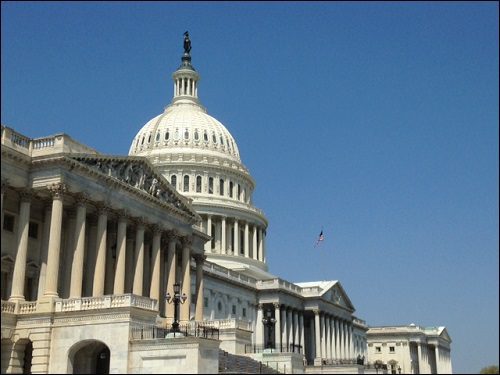The proposed Republican tax reform plan would end private-activity bonds and tax-credit bonds that finance some types of infrastructure projects, a credit of $7,500 for each plug-in electric vehicle and a write-off for employers to offer commuter benefits.
The plan would also limit early refinancing of existing municipal bonds.
The GOP plan aims to end private activity bonds, which allow bondholders an income tax exemption on interest payments similar to municipal bonds and are used to finance private infrastructure projects that show a public benefit. And it would prevent new issuance of bonds that provide a tax credit in lieu of cash interest payment.
The plan leaves largely untouched the tax exemption for regular municipal bonds that are widely used for public infrastructure financing, including transportation projects. However, Bloomberg reported that the GOP tax bill would curb early refinancing used by state and local governments. Refinancing is typically used to save costs on interest payments by taking advantage of lower rates.
For the various bond-related items in the bill, Bloomberg said that “if enacted, the proposals would cut the amount of municipal debt sold each year by billions of dollars and potentially boost demand for the bonds.”
And Politico reported that the plan “would remove a key incentive for employers to offer commuter tax benefits. While employers would still be allowed to either give employees untaxed transportation money as a fringe benefit or to deduct it as pre-tax income from their paychecks, the businesses themselves would not be able to write off the expense. The cap for the transit and parking subsidies (or pre-tax contributions) would still each be $260 per month for 2018.”
Industry groups were still combing through the bill to understand various ways it could affect the transportation industry, and could report more examples later.
“The credit for plug-in electric drive motor vehicles would be repealed,” said a section-by-section legislative summary prepared by the majority staff of the House Ways and Means Committee.
That would come at a time when U.S. consumers are ramping up their purchases of electric vehicles and states are building a network of charging stations.
The Hill newspaper reported that advocates of the electric-vehicle tax break “have ramped up lobbying efforts to save the credit, which has benefited electric vehicle manufactures like Tesla. The credit is limited at the first 200,000 electric vehicles sold by each manufacturer, but no one has yet hit that cap.”
While electric passenger cars currently make up just a small fraction of the total U.S. vehicle fleet, their annual sales have risen by double digits in recent years as more models allow drivers to operate for more miles between charges.
But the spread of hybrids and plug-in electrics also means more vehicles are taking to U.S. roads without contributing as much, or contributing anything, to the mainly petroleum fuel-based excise taxes that feed the Highway Trust Fund and help pay for highway and transit projects.
Recently, governors of seven western states signed a pact to create a regional electric vehicle corridor for travel on their interstate highways.
This year, as part of its settlement of federal charges that it cheated on U.S. emissions tests, automaker Volkswagen set aside $2 billion to develop electric vehicle charging networks and has begun deploying those funds.
Volkswagen also aside nearly $3 billion to fund separate environmental mitigation projects proposed by states, which can also include electric vehicle charging systems. Virginia’s governor plans to use some of its VW funding to build charging stations along major travel corridors.


